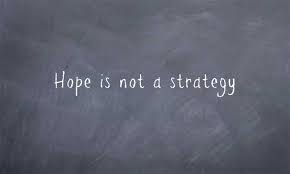The popularity of online gambling has skyrocketed in recent years, with thousands of platforms offering a variety of games, bonuses, and betting options. However, not all online casinos are created equal, and some may pose risks to players through unfair practices or even outright scams. To ensure a safe and enjoyable gambling experience, it’s crucial to know how to spot a reputable online casino and avoid those with red flags. This guide will offer practical advice on identifying trustworthy platforms, understanding the importance of licenses and certifications, and recognizing warning signs.
1. Check for a Valid License and Regulation
The most important factor in determining whether an online casino is reputable is its licensing and regulation. Reputable casinos are licensed by recognized regulatory authorities, ensuring that they meet strict standards for fairness, security, and player protection. Here’s how to verify a casino’s licensing:
Look for Licensing Information: Reputable online casinos will display their licensing information prominently, usually at the bottom of the homepage. Common licensing bodies include:
Malta Gaming Authority (MGA)
UK Gambling Commission (UKGC)
Curacao eGaming
Gibraltar Gambling Commissioner
Kahnawake Gaming Commission
Verify the License: Licensing information should include the license number and issuing body. Visit the regulator’s website and use the license number to verify that the casino is indeed registered and in good standing. Avoid any casino that fails to provide this information or claims to operate without a license.
2. Look for Third-Party Certifications
In addition to a valid license, reputable online casinos often seek certifications from independent third-party organizations that audit and test their games for fairness. These certifications provide an extra layer of assurance for players. Key certifying bodies include:
eCOGRA (eCommerce Online Gaming Regulation and Assurance): This independent agency tests games for fairness, ensuring that they are not rigged and that the outcomes are random. Look for the eCOGRA seal of approval on the casino’s website.
iTech Labs: This organization conducts rigorous testing on gaming software to ensure fairness and reliability.
TST (Technical Systems Testing): Another independent testing firm that checks the randomness and integrity of casino games.
Casinos that proudly display certifications from these organizations demonstrate transparency and commitment to fair play.
3. Examine the Casino’s Security Features
Security should be a top priority for any online casino. A reputable platform will have robust security measures in place to protect players’ personal and financial information. Here’s how to assess a casino’s security features:
SSL Encryption: Ensure that the casino uses Secure Socket Layer (SSL) encryption to protect your data. This technology encrypts all information transmitted between your device and the casino’s servers, safeguarding sensitive data such as credit card numbers and login credentials. Look for a padlock symbol in the URL bar and ensure the website starts with “https” rather than “http.”
Responsible Gambling Tools: Reputable casinos take responsible gambling seriously and offer tools to help players manage their spending. Look for features like deposit limits, time limits, and self-exclusion options. These tools indicate that the casino prioritizes player safety and well-being.
4. Read Reviews and Player Feedback
One of the best ways to gauge the reliability of an online casino is by checking player reviews and feedback. While no casino will have a perfect reputation, a consistent pattern of complaints or negative reviews is a red flag. Here’s how to assess a casino’s reputation:
Independent Review Sites: Visit reputable review sites that specialize in online casinos. These sites often provide in-depth analyses, including pros and cons, payout times, and overall player satisfaction.
Player Forums: Online gambling forums can be a valuable resource for gathering honest opinions from real players. Pay attention to recurring complaints about issues like delayed payouts, unresponsive customer service, or unfair terms and conditions.
Social Media Presence: Check the casino’s social media pages for player comments and reviews. Casinos with active, responsive social media accounts tend to care about their customer base.
5. Assess the Game Selection and Software Providers
The quality of a casino’s game selection and the reputation of its software providers are also strong indicators of trustworthiness. Reputable casinos partner with well-known software developers, ensuring that their games are fair and reliable. Watch out for the following:
Top Software Providers: Look for games powered by industry-leading providers such as Microgaming, NetEnt, Playtech, Evolution Gaming, and Betsoft. These companies are renowned for producing high-quality, fair games, and their partnerships with casinos are a sign of reliability.
Game Variety: A reputable casino will offer a wide variety of games, including slots, table games, and live dealer options. If the game library is limited or includes unknown or poorly rated providers, this could be a sign of a subpar platform.
6. Examine the Terms and Conditions
Always read a casino’s terms and conditions (T&Cs) before signing up, especially when it comes to bonuses and withdrawals. Reputable casinos will provide clear, fair T&Cs, while untrustworthy sites may include hidden clauses designed to trap players. Watch for these red flags:
Unreasonable Wagering Requirements: Be cautious of casinos that impose excessively high wagering requirements on bonuses. For example, if you must wager your bonus 50 times before withdrawing any winnings, it could indicate unfair practices.
Restricted Withdrawal Limits: Some rogue casinos impose overly restrictive withdrawal limits or take an unreasonably long time to process withdrawals. Always check how long it takes to receive your winnings and whether there are any withdrawal caps.
Bonus Clauses: Ensure that the terms of any bonuses or promotions are transparent and fair. Avoid casinos that bury important information in fine print or require you to jump through too many hoops to claim your bonus.
7. Customer Support Availability
Customer support is a vital component of a reputable online casino. Trustworthy platforms will offer multiple channels for players to reach support, including live chat, email, and phone support. Consider the following:
24/7 Availability: Reputable casinos typically offer round-the-clock support to ensure that players can get assistance whenever they need it.
Responsive and Helpful Support: Test the customer service by asking a few questions before you sign up. A good casino will have knowledgeable, courteous staff who respond quickly and effectively.
8. Red Flags to Avoid
Finally, here are some clear red flags that signal an online casino might be a scam:
Lack of Licensing Information: If a casino doesn’t display its licensing credentials or fails to provide verifiable licensing information, avoid it.
Poor Website Design or Functionality: A low-quality website, filled with broken links or outdated graphics, may indicate that the casino is not serious about providing a quality service.
Unrealistic Bonus Offers: If a bonus seems too good to be true—such as offering an excessively large bonus with minimal or no wagering requirements—it’s likely a trap.
Negative Reputation: A consistent pattern of complaints from players about issues like delayed payouts or closed accounts is a strong indicator that a casino is untrustworthy.
Conclusion
Spotting a reputable online casino like joker123 apk requires due diligence, but following these steps can help protect you from scams and ensure you have a safe, enjoyable experience. By verifying licenses, checking for third-party certifications, reviewing player feedback, and examining security measures, you can identify trustworthy platforms and enjoy your time gambling online with peace of mind. Always prioritize your safety, and when in doubt, choose casinos that prioritize transparency, fairness, and player protection.





